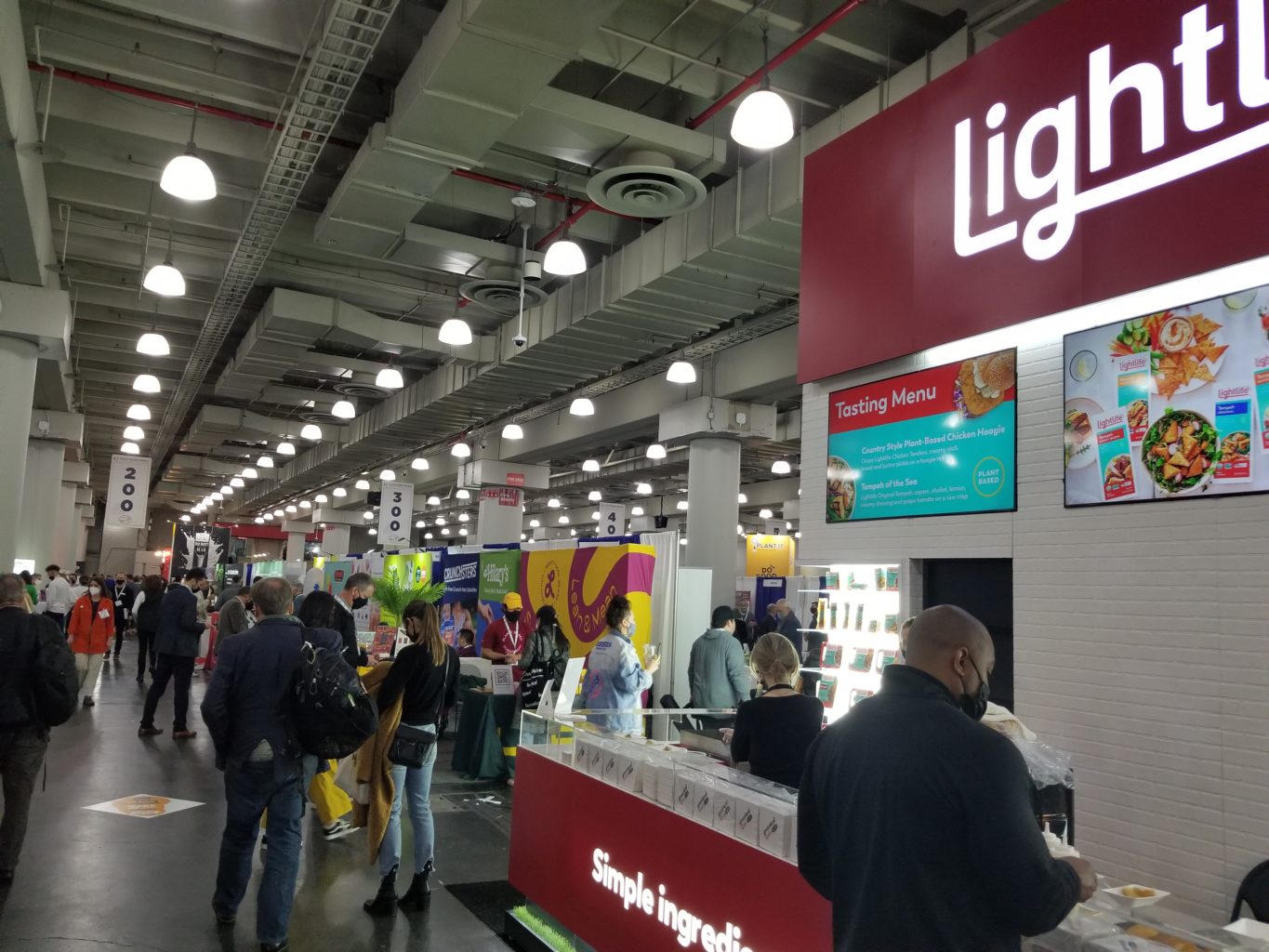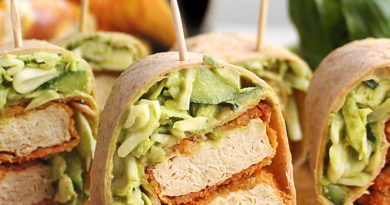Keeping Kosher at the Plant Based World Expo
Plant Based World Expo was held at the Jacob Javits Convention Center in New York City on December 9-10, 2021 after a nearly two year hiatus. Despite the continuing pandemic, and record economic disruptions, the plant-based food business is booming. Sales are up, particularly for meat and diary substitutes, and innovation continues to bring new products to the market. Not every product I saw at PBW was new, but they may be new to folks in the kosher world.
Kosher foods were everywhere at PBW, and signs from certification agencies were prominent in many displays. These expos attract many start ups and several of those I spoke to said that kosher is on their radar as they scale up. Others were further along and told me that certification was in progress.

To understand why it may be difficult for a small vegan company to be kosher, one must understand how commercial food is prepared. Unless you are a large manufacturer churning out products 24/7, you are not likely to have your own dedicated facility to prepare and package your product. To meet the sanitation and other standards for commercially sold foods, smaller producers use co-pack facilities. These are companies that have the equipment to take the raw ingredients and turn them into the end product, and then package and send it to a distributor who gets it to retailers and food service. Since co-pack facilities are shared with multiple food manufacturers, kosher certification can be a challenge. However, many co-pack facilities are kosher certified, or do kosher certified runs of products. So if you are using Co-Pack Company A and they are (or can provide) OU certification, it is often easiest to go with the OU, since very little action is required on your part, other than paying the fee to use the OU on your package. To get certification at a non-kosher facility would be expensive since they would typically have to shut down for koshering, a process that could take 48 hours.
Some kosher co-pack facilities are certified Dairy. In such a case, unless additional measures are taken, any product made there would be certified dairy, even if it is vegan and even if the equipment is thoroughly cleaned to the point that no allergen warning is needed.
Many vegan products, particularly vegan dairy substitutes like milks and cheeses, fall into this situation. Sometimes, they can get a DE designation, or consumers can check with the agency if the D means DE or not. Getting pareve designation at a D facility is an added expense that most vendors are not interested in. This can affect other products too, for if a product carries a D or DE, even if 100% vegan, any product that uses it (such as a frozen pizza that uses D or DE designated vegan cheese) would also carry a D or DE, respectively.
Fortunately, most products that were certified were fully pareve, and some companies understood the advantages of such a certification. But according to one official at the OU, it is up to kosher consumers to ask companies to seek pareve, rather than D or DE designation, and of course to urge vegan companies without certification to go kosher. Several companies told me that they are looking for kosher because of how many people asked them for it. Another way is to reach out to your local supermarket chain and ask their food buyer to consider kosher status when buying vegan foods. The major chains know all about kosher and vegan foods; consumers have to get them to link the two.
In upcoming posts, I will review some of the highlights from various categories at the show. Look for these products online and at your local retailer.




